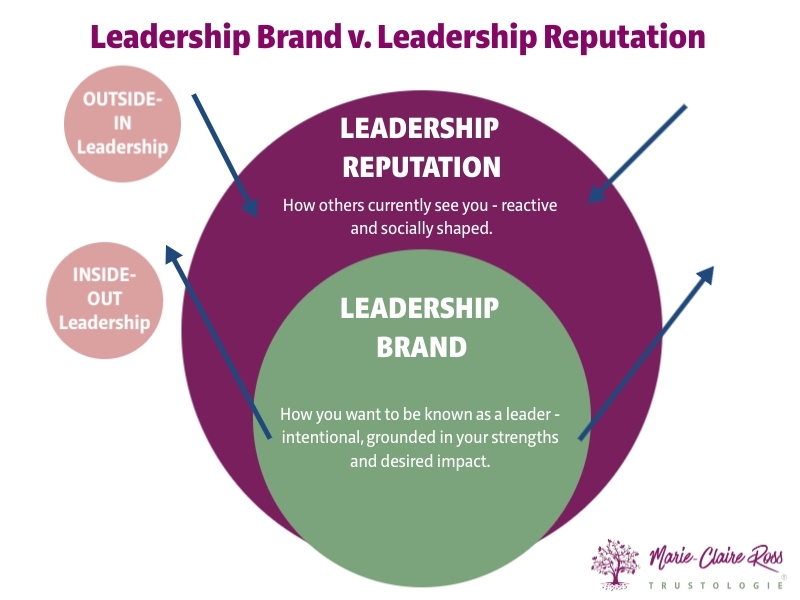6 Essential Executive Skills That Will Make You Unstoppable in 2026
The workplace is evolving at a pace few previous generations have seen and 2026 will mark a turning point. The Future of Work is blended, not hybrid....
Develop leaders, strengthen executive teams and gain deep insights with assessments designed to accelerate trust and performance.

Transform how your leaders think and perform with keynotes that spark connection, trust and high-performance cultures.

Explore practical tools, thought-leadership and resources to help you build trusted, high-performing teams.

Trustologie® is a leadership development consultancy founded by Marie-Claire Ross, specialising in helping executives and managers build high-trust, high-performing teams.

6 min read
Marie-Claire Ross : Updated on May 25, 2023

There comes a time for every manager when they have a direct report that they just don't know how to handle.
It might be that they are not performing at the right standard or don't even want to improve. Or perhaps they get really defensive when you talk to them about what went wrong. Or maybe they are really negative and seem to enjoy making other team members complain.
While we could no doubt continue to write a long list of issues, the truth is as manager you need to somehow turn the situation around, so that you have an active and happy participant in your team.
So how do you do that?
Now, we could go into all of the interventions you can use to improve performance. While they have their place, they don't always work effectively. Because there is one place you have to start first. And it's even more difficult than the difficult person.
And that is asking yourself honestly: how am I contributing to them being difficult?
Ouch!
For a lot of you, that question will annoy you even more than the difficult person. But I ask it, because it's often the missing link. Our attitudes, biases and mindsets can often work against what we want to achieve.
It's known as psychological projection which is a defense mechanism people subconsciously employ in order to cope with difficult feelings or emotions. Psychological projection involves projecting undesirable feelings or emotions onto someone else, rather than admitting to or dealing with the unwanted feelings.
That difficult person is often showing you what you need to look at within yourself.
As a leadership coach, I am often brought in to "fix" a negative manager. What often happens in coaching is that I discover that the systems that a "negative" manager is working under are the real issue. Their boss, who has a deep need for control (because they actually tend to think the worst of others), creates a negative working environment, that makes even the most positive person, negative.
So how do you know if you're part of the problem for your difficult employee? Let's consider these unconventional approaches.
We process whether we can trust someone through our emotions. We don't trust others by what they say, it's how they make us feel. It's their consistent action that show that they care about our wellbeing that determine whether we feel we can or cannot trust them.
If you believe that someone is incapable or annoying, they can feel that. Anything you say will make them defensive or cynical.
We need to be clear about our intention with what we want and expect from others, so that we do not unwittingly send confusing signals that degrade trust.
If you are having issues with a direct report, write down your intention. Of course, it has to be framed in a positive way. For some of you, this might take a bit of time before you can really believe it. If you can't even come up with a positive intention for them, you might as well stop right now. Nothing will work to improve the working relationship with them, because you are sending out signals that are stopping the situation from improving. As the saying goes, "you get what you expect."
"Never ascribe to malice that which is adequately explained by incompetence."
Napoleon Bonaparte
Ideally, you have an intention that might be something like "I intend that in our next interaction we can come to a shared understanding of what they need to meet the expectations of the work required." or "I intend to work in harmony with Ben and truly understand what he needs from me to work more effectively."
We often think our words can change behaviour, but really it's our intention and the subtle information that we signal out to everyone around us.
Leading by positive intention, when we believe the best in those around us, is much more powerful than leading by what you say. Ask yourself: "Do I have a negative belief about this person that's somehow damaging our relationship?"
In a Re-thinking podcast interview, Adam Grant, a well-known Wharton professor, interviewed, Pete Carrol, head coach of the Seattle SeaHawks. Pete Carrol has been named one of the most successful football coaches of all time. In the interview, Pete Carrol was asked what he does when things go wrong on the football field:
"Always go to yourself first in terms of accountability. If someone doesn’t act according to the way that I want them to as a coach, the first thing I think of is, maybe I didn’t explain it to them right. Maybe I wasn’t clear enough so that he understood where I’m coming from. So I’m not going to blame him. I’m going to figure out how I can do a better job to help them be more effective. To hold themselves accountable for what they are doing - it’s got to start with me."
Looking within ourselves as to how we could be leading others better is not just important for our reports, but us as well.
This is really challenging because it can be much easier to blame others, look the other way or make our busyness the excuse.
The longer we ignore the problem, the more difficult it will be to improve the situation. The risk is that if we don't deal with the issue quickly, we risk damaging the relationship permanently. We have to deal with the issue as soon as we can.
Growing as a leader means recognising there is a problem and working on it. Pronto. This means taking personal responsibility for solving the problem. After all, every relationship is a social contract between one or more people. Every single person plays a part in that relationship. At the heart of it, requires acknowledging the part you play and being willing to fix it.
And this doesn't mean blaming and berating yourself. Approach the situation with love and respect - for yourself and the other person.
After all, accountability is two-way.
To be truly accountable requires understanding that we are in charge of our team results. It requires emotional maturity and the true understanding that the buck stops with us. Blaming others stops us from learning about how we can be a better leader.
Remember, people are picking up whether they can trust you emotionally. It's your non-verbal signals that they truly sense.
If you're feeling good about what you and your team are achieving and if you believe in your people they will know that.
And of course if you have the right intention and you are supporting people and things don't change, then you can try other interventions.
If you want more tips on how to improve team performance, register for the free webinar: 3 Indispensable Secrets to Thriving, Capable Teams here.

The workplace is evolving at a pace few previous generations have seen and 2026 will mark a turning point. The Future of Work is blended, not hybrid....

Many leaders jump into a leadership position excited by the opportunity to help others and perform at a higher level.

What makes a good team leader isn’t just about having authority or getting tasks done - it’s about the ability to create an environment where people...

Leading a new or existing team or even working towards a new team goal is an exhilarating journey, but it can also be filled with anxiety. This is...
.jpg)
Today’s ever changing workplace, features increasing speed, complexity and dense interdependencies. Over the last century, work has transitioned from...
In my research with high performers, one of the stand out themes was their confidence in tackling a difficult conversation. While none of them felt...